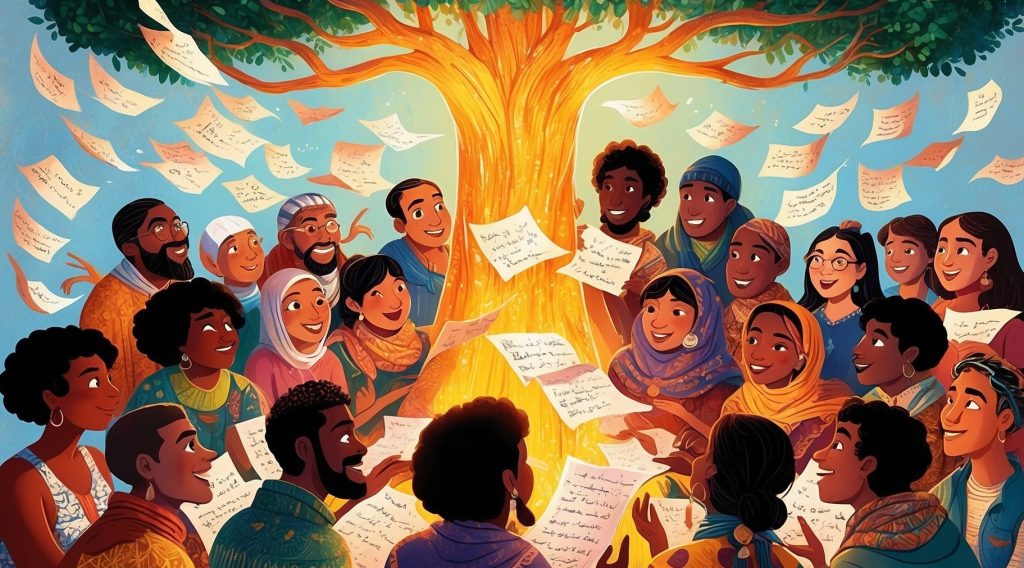Whose story is it anyway? The transformative power of pseudonym choice

Dr Lynette Pretorius
Contact details
Dr Lynette Pretorius is an award-winning educator and researcher specialising in doctoral education, academic identity, student wellbeing, AI literacy, research skills, and research methodologies.

Dr Sweta Vijaykumar Patel
Contact details
Dr Sweta Vijaykumar Patel is a lecturer, researcher, and mentor specialising in early childhood education, creative methodologies, teacher education and culturally responsive pedagogy.
As qualitative researchers, we’ve often used pseudonyms in our work to protect the identities of participants. It’s a standard practice and one that’s meant to safeguard confidentiality while ensuring their stories remain authentic. But recently, we conducted a study that made us pause and rethink how we approach pseudonyms. It highlighted the power of inviting participants to choose their own pseudonyms and how that simple act can transform the research process.
In our study, 40 doctoral students shared their experiences of academia, and part of that was choosing pseudonyms for themselves and their institution. They were also asked to explain the reasons why they chose those names. Reading through their choices, we were struck by how much thought and emotion they poured into these names. For some, the pseudonym chosen was deeply personal. One participant, for instance, chose “Chess” to reflect their strategic navigation through life as an autistic, trans individual. Another participant selected “Kurdi,” proudly emphasising their Kurdish heritage and lifelong pursuit of knowledge. These names were more than identifiers; they were declarations of identity, resilience, and aspiration. Some picked hopeful names like “The University of Dreams” for their institutions, reflecting admiration or ambition. But not all pseudonyms were positive. One participant, for example, referred to their institution as “The University of Business,” critiquing the commodification of education. Another layered nuance onto their name, highlighting disillusionment with systemic issues they encountered. These choices offered us a window into their experiences, highlighting both their struggles and triumphs.
Letting participants name themselves isn’t just a small methodological tweak, it was a purposeful act of empowerment. By giving participants the opportunity to take control of their own representation, we were able to disrupt the traditional power dynamics that so often define research. It wasn’t just about collecting data; it was about fostering trust, collaboration, and authenticity.
Of course, there are challenges with this approach. Participants might feel pressure to choose names that conform to researchers’ expectations or worry about how their pseudonyms will be interpreted. It also takes time and effort to create a supportive environment where participants feel comfortable making these decisions. But the benefits (including greater trust, richer data, and more ethical representation) far outweigh the hurdles.
Conducting this study has changed how we think about our own research practices. It’s a reminder that the small details, even something as simple as giving a participant the chance to name themselves, can carry huge implications. When participants take control of their representation, it deepens the authenticity of their stories and strengthens the research process.
We also see this as a challenge to examine the systems within which we work. We’ve shown that names aren’t just labels; they’re an opportunity for participants to reclaim their stories, critique their environments, and express their identities on their own terms. As noted in another blog post, epistemic justice is about fairness: it ensures that everyone’s voice and knowledge are equally respected, no matter where they come from or how they express themselves. As researchers, we’re in positions of power, and it’s easy to perpetuate epistemic injustice without even realising it. But when we hand the reins to participants, we’re making a deliberate choice to amplify their voices and honour their expertise.
For us, this study is also a reminder to slow down, reflect, and listen. Research isn’t just about collecting data; it’s about honouring the people behind the stories. And sometimes, it starts with something as simple and as profound as the researcher asking, “What’s in a name?”
Questions To Ponder
How can you create a space where research participants feel truly empowered to represent themselves?
What does it mean to approach research as a collaboration, rather than a process of data extraction?
How can naming practices become tools for resistance and critique in your own work?

Join my 23 subscribers!

An illuminating examination of the profound impact that allowing research participants to select their own pseudonyms has on both the authenticity of data and the empowerment of individuals. By sharing personal stories behind chosen names, participants transcend mere anonymity, offering rich insights into their identities and experiences. This approach not only challenges traditional research methodologies but also fosters a collaborative environment that honors participants’ agency and narrative ownership. A compelling testament to the transformative potential of participatory research practices.